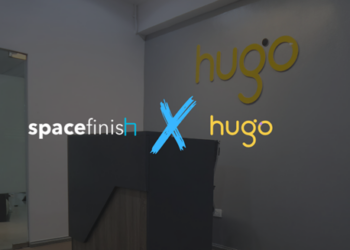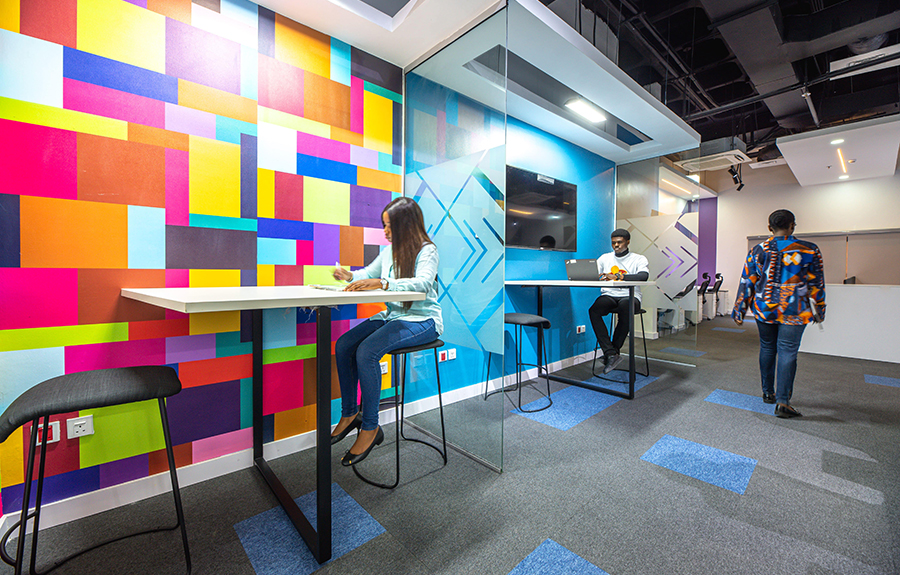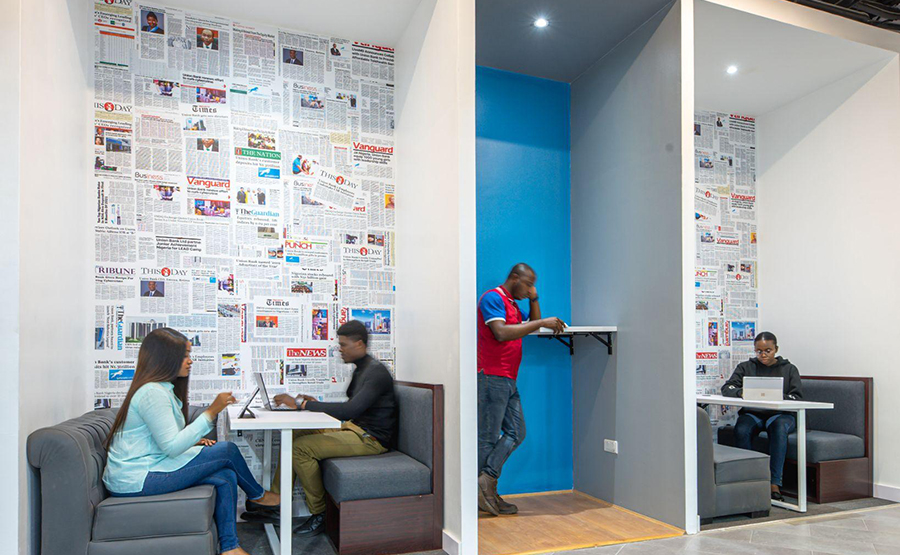Traditional learning environments often struggle to keep pace with the evolving demands of a dynamic, tech-driven generation.
Outdated spaces and rigid learning structures stifle creativity, hinder collaboration, and limit real-world problem-solving opportunities.
The newly inaugurated Centre of Research, Innovation, and Entrepreneurship (Awori House) at Lagos State University (LASU) — generously donated by the Senior Special Assistant to the President on SDGs, Princess Adejoke Orelope-Adefulire, OFR—addresses these challenges head-on.
This transformative space was built and designed to foster a culture of innovation, creativity, and youth engagement, around the Lagos State University (LASU) community.
At the heart of this groundbreaking initiative is Spacefinish, a global leading design and build firm specializing in human-centered, future-focused spaces. Through cutting-edge innovative and dynamic spatial planning, Spacefinish has redefined what a modern learning environment can achieve for learners.
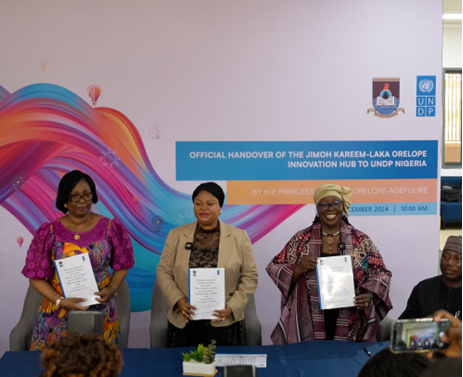
The inauguration of the UNDP centre of research, innovation, and entrepreneurship at Lagos State University (LASU) marked a significant milestone in advancing educational infrastructure through strategic partnerships. The event was graced by esteemed dignitaries, including the donor, Princess Adejoke Orelope-Adefulire, OFR, SSA to the President of Nigeria on SDGs; Ms. Elsie G. Attafuah, UNDP Resident Representative for Nigeria; and Prof. Ibiyemi Olatunji-Bello, Vice-Chancellor of LASU, among other notable attendees.
In her address, Princess Orelope-Adefulire emphasized the project’s alignment with nation’s sustainable development goals, stating,
“Innovation Hub was chosen because it will benefit the growth of youths in Nigeria and to honor my late father, a visionary. I believe that it can’t be the responsibility of the government alone to achieve sustainable growth, hence why I choose this unique project to support the nation’s broader SDG goals. Most importantly, to add value to the youths… that is why this project is situated within the university environment”
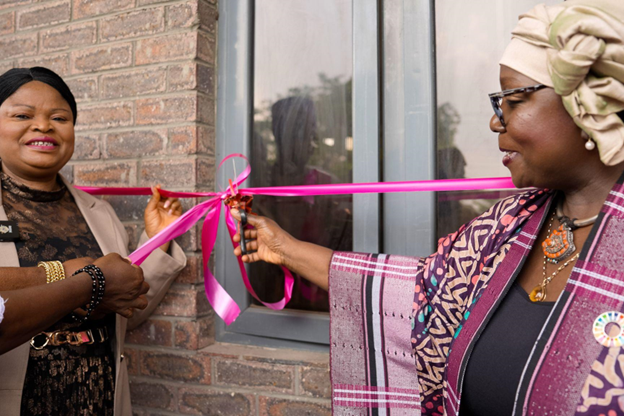
The UNDP centre of research, innovation and entrepreneurship was designed to incorporate flexible, multi-purpose environments that encourage learning, creativity, and innovation. Equipped with dynamic spaces and the best-in-class tools that bridge the gap between academia and the tech industry.
“The future of development is the youth of Nigeria and therefore we feel very strongly that in this space, they will be able to ideate, collaborate and dream about solutions that address complex development challenges,” said UNDP resident representative for Nigeria, Ms. Elsie G. Attafuah.
“Our goal is to create an ecosystem around innovation, digitalization and the knowledge economy. This space, the centre for research and innovation and entrepreneurship, we believe is part of the bigger ecosystem we’re putting together. Spaces that help to create ideas and startups, is part of the broader dream we have using innovation and digitalization as an enabler for development … and spaces like this are the ones to help us to achieve that objective”.
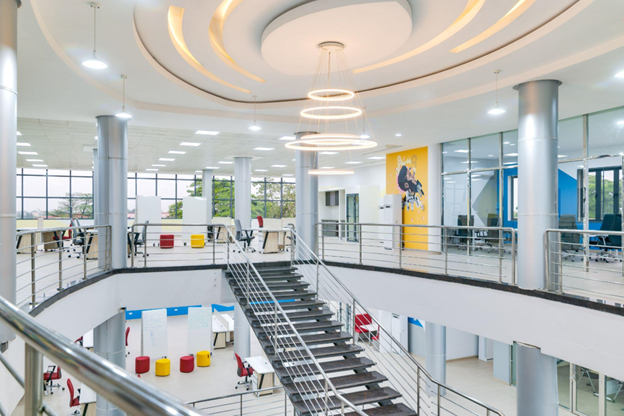
Prioritizing human-centered designing of the innovation hub impacts user experience—ensuring that students, innovators, and researchers interact with the environments in ways that enhance engagement, creativity, and collaboration.
“Innovation hubs should feel less like classrooms and more like startup incubators, where users can experiment with ideas, develop prototypes, and engage in design thinking methodologies. This is why we integrated different learning styles—that allows for growth” said Remi Dada, CEO/Founder of Spacefinish. “This project exemplifies our commitment to creating environments that not only meet but exceed the needs of today’s learners and tomorrow’s leaders.”
The innovation hub was developed with a focus on fostering industry partnerships and practical learning experiences, students gain hands-on exposure to real-world projects and mentorship opportunities, preparing them for the future of work.
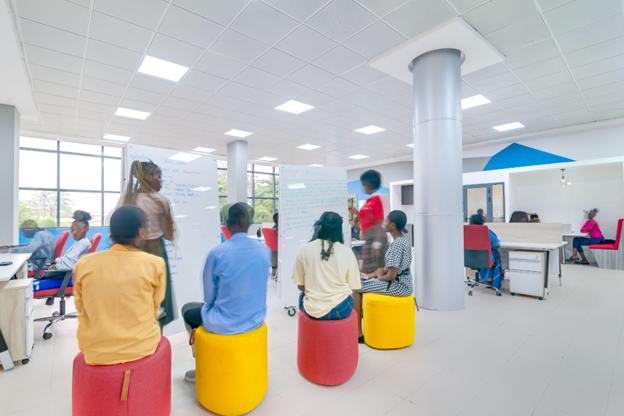
The LASU Vice Chancellor, Prof. Ibiyemi Olatunji-Bello, emphasized the environment as inspiring and forward-thinking fostering community-building between learners:
“This shows us great opportunities for our students – the different design within the space will impact students in both the tech community and even content creation as they will further utilize the space resources”, she stated.
With this partnership, Spacefinish, UNDP, and LASU are redefining the role of physical spaces in education—proving that human-centered design is key to building a future-ready talent workforce.




